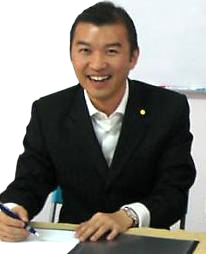Ask the Expert – Overcoming Separation at Preschool
by on 02/08/2025 ...


Question : My 4 year old daughter doesn’t handle separation well. When she attended a new preschool early this year, it took her about a month to really settle down without crying when we send her off to school in the morning. Even after that, she still cry occasionally. I used to think that maybe she doesn’t like the new school or the teachers, but that’s not the case when I verified it with the principal, saying that she is behaving and enjoying her time at school. This actually happened in her previous school, too. What could be the reason? How can we make this less of a painful experience to her? I mean, I don’t want her to hate school at such a young age. To make things more complicated, we are going to move to a new place soon, and we will have to enrol her into a new school again, will she be able to cope?
Answer : It is natural for your daughter to feel anxious when you say goodbye. This is common for young children nowadays because many have to attend school at a very young age. Her condition may be similar to Separation Anxiety Disorder but it may not be. Separation anxiety is a normal stage of development. With some understanding and coping strategies, separation anxiety can be relieved. This anxiety should fade as your daughter gets older. However, if anxieties intensify and persist getting in the way of school or other activities, she may have separation anxiety disorder. This condition may require professional treatment — but there is also a lot that you as a parent can do to help.
For children with normal separation anxiety, there are steps you can take to make the process of separation anxiety easier.
- Practice separation. Leave your child with someone she is familiar for brief periods and short distances at first.
- Schedule separations only after naps or feedings. Children are more susceptible to separation anxiety when they’re tired or hungry.
- Develop a “goodbye” ritual. Rituals are reassuring and can be as simple as a special wave through the window or a goodbye kiss.
- Keep familiar surroundings when possible and make new surroundings familiar.
- Leave without fanfare. Tell your child you are leaving and that you will return, then go — don’t stall.
- Reassure your child that he or she will be just fine — setting limits will help the adjustment to separation.
Separation anxiety disorder is NOT a normal stage of development, but a serious emotional problem characterized by extreme distress when a child is away from the primary caregiver. However, since normal separation anxiety and separation anxiety disorder share many of the same symptoms, it can be confusing to try to figure out if your child just needs time and understanding—or has a more serious problem. The main differences between healthy separation anxiety and separation anxiety disorder are the intensity of your child’s fears, and whether these fears keep him or her from normal activities. Children with separation anxiety disorder may become agitated at just the thought of being away from mom or dad, and may complain of sickness to avoid playing with friends or attending school. When symptoms are extreme enough, these anxieties can add up to a disorder.
If the school is giving positive feedbacks when she is in school, we are pretty sure it is only the initial stage when you leave her that causes her anxiety. However, always speak to her and ask why she cries if she love to go school. You need to know both sides of her situation. Try the tips above and be consistent with them.
If you have any question, please email your question to editor@kiddy123.com (with email subject “Ask The Expert”).
Thank you in advance for your participation.
…………………………………………………………………………………………………………..
About Our Expert

Professor Dr. Eric Lim is the founder of Kits4Kids Foundation, a foundation that specializes in the education and development of children with special needs.
He also leads many international social enterprises all around the world. Prof. Dr. Eric Lim holds a PhD in Educational Management as well as Masters of Education, Bachelor of Special Education and Masters of Psychology, focusing on child psychology and counseling.
He is passionate about helping as many people as he could in spreading the love for children and humanity.
Prof. Dr. Eric Lim is here to answer your questions on:
- Childhood care (Aged infants and above)
- Children education
- Play tools for skills development
- Family counseling
- Other relevant areas































